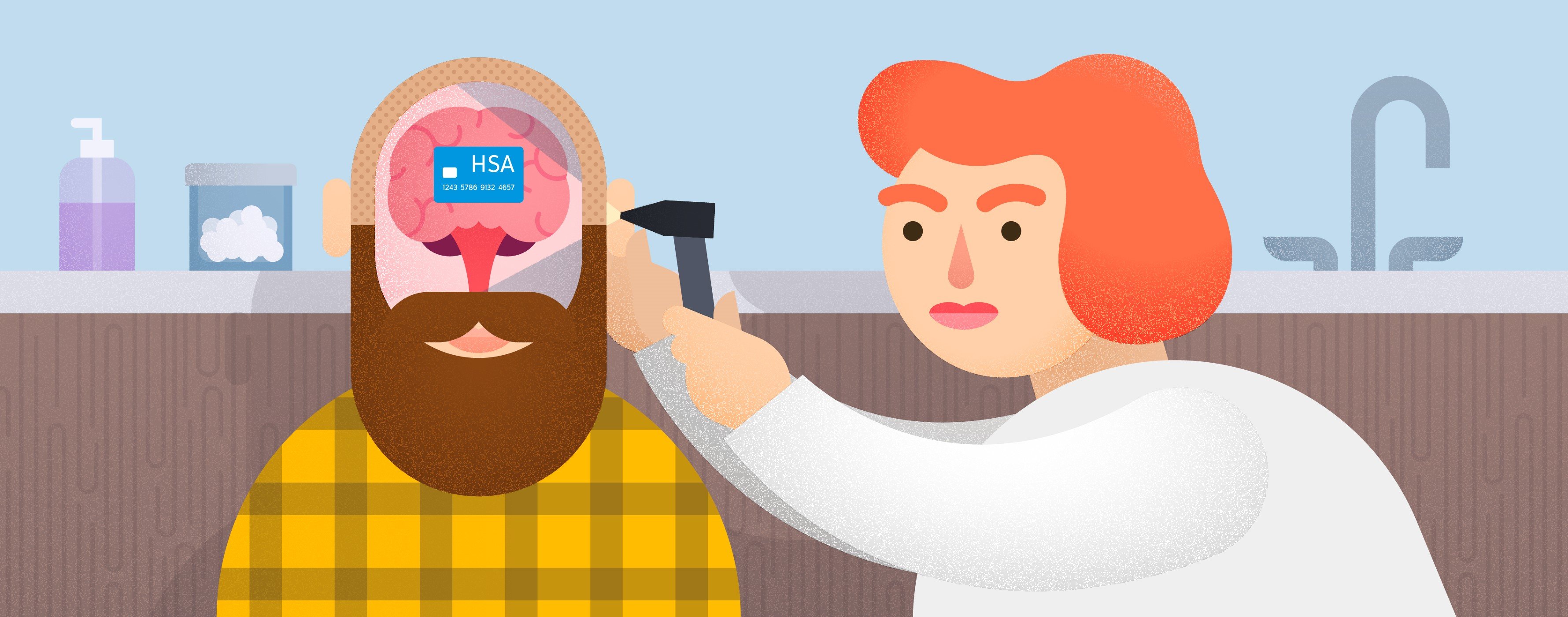Health Savings Accounts

Have you considered how much your medical expenses affect your budget? Find out how to make the most of an HSA or FSA.
A Health Savings Account (HSA) is a unique savings account that allows you to set aside money on a pre-tax basis to pay for current or future qualified medical expenses. Qualified expenses include deductibles, copayments, dental bills, prescription medications, and even over-the-counter health care items. Withdrawals you make from the HSA to cover these costs are tax free.
While an HSA resembles a Flexible Spending Account (FSA), which an employer may offer as part of your benefits package, there are some major differences. For example, the money in your HSA can be rolled over from year to year, which isn't the case with an FSA. If you change jobs, you can take an HSA, but not an FSA, with you. And if you don't have access to an HSA through your job, you can open one with Osgood Bank, or another financial institution, on your own and deduct your contributions when you file your tax return at the end of the year. That's not possible with an FSA.
So why doesn't everybody have an HSA?
The primary reason is that you must be enrolled in a high-deductible heath plan (HDHP) to be eligible.
The HDHP Connection
Federal Law defines an HDHP as one having a minimum upfront deductible that participants must pay out-of-pocket before the insurer begins to cover any health care costs. Your employer may offer such a plan, though the deductible may be higher than the federal floor. Or, if you aren't offered health insurance where you work, you may choose a HDHP on your own, rather than traditional health insurance, because traditional health insurance is likely to have lower or no deductibles but higher premiums.
MAKE THE MOST OF YOUR HSA OR FSA COACH
The same federal law that sets the minimum upfront deductible puts a cap on your annual out-of-pocket medical expenses. Those are
the expenses the savings in an HSA are designed to cover.
Because of the HDHP-HSA link, the first thing you must decide is whether an HDHP is right for you. You'll also want to consider whether you'll contribute to a linked HSA up to the annual cap. Like the deductibles and out-of-pocket limits, these change each year. In 2023, the contribution limit is $3,850 for individual coverage and $7,750 if you have family coverage. If the HDHP is an employer plan, your employer may contribute part of that amount as an incentive to encourage you to choose the HDHP. That's because the (typically lower) HDHP premiums reduce employers' cost of providing health insurance.
In addition to lower premiums and tax advantages, HDHP-HSAs give you the flexibility to comparison shop among health care providers and more control over the prices you pay for health care - at least in theory. But that's not always the case. In fact, if you're part of an employer plan, you may have to use the insurance company's network of doctors if you want your out-of-pocket expenses to count towards meeting your deductible.
If you purchase a HDHP on your own, you may find it's not easy to compare costs, as doctors tend not to provide a schedule of prices. You may also have difficulty negotiating a lower price for services as an individual than a group plan might be able to achieve.
What's an HSA Custodian?
For employers that provide HDHPs to their employees, the employer may have selected a financial institution to act as custodian for participants' HSAs. For example, Osgood Bank works as an HSA custodian for several local businesses. As custodian, we work with employers and HSA account holders to manage contributions and service overall HSA relationships. We can establish online banking access to HSA accounts, which allows free bill pay services (ideal for making and tracking those medical payments). Osgood Bank can also provide special HSA debit cards to make eligible medical payments online, by phone, and in-person. As the custodian of the account, we will also provide you with all of the necessary documentation that you will need when filing your taxes each year.

For HSA account holders that have an established HSA with another custodian (financial institution) from previous employment, we can transfer the funds to Osgood Bank. This will allow you better control over your annual contributions, and peace of mind knowing that all of your tax reporting will be correct. Ultimately, by working with a custodian, employers and HSA account holders get the benefit of working with experts that can best serve and manage the special needs of an HSA account.
A Tax-Free Way to Save
If you can afford to fully fund your HSA and pay your out-of-pocket health expenses from your ordinary income rather than withdrawing from your HSA account, you can take advantage of an additional way to accumulate tax-free savings. That may be especially attractive if your modified adjusted gross income is too high to allow you to contribute to a Roth IRA. This way, you can draw on the funds in your HSA to cover your health needs when you're retired and likely spending more on health care than you have in the past.

In order to make this most effective, it's wise to contribute as much as you can to fully fund your HSA. When you turn 55, you can contribute an additional $1,000 to catch-up contributions annually for the next 10 years, further boosting your account value. But you can no longer make contributions after you turn 65. You should also keep in mind that if you use the money other than health care expenses before you turn 65, you'll owe tax on the amount you take out of the account, plus a 10% tax penalty.
On the other hand, if you're trying to manage your current health care costs, HSAs can be a useful tool for accumulating tax-free money to pay your out-of-pocket expenses. You'll owe less tax because what you contribute to an HSA isn't taxed, your earnings aren't taxed, and neither are your qualified withdrawals. So you're saving on taxes in three ways!
While there are many potential advantages to HSAs for meeting both immediate and long-term health care costs, you do have to determine whether you're willing to enroll in a HDHP to have access to this opportunity to save, and whether you'll actually contribute enough to cover your costs.
Here at Osgood Bank, we're happy to sit down with you to discuss your needs and discuss your options.
For information from the IRS about Health Savings Accounts, including HDHP rules, contribution limits, and a list of qualified medical expenses, click here.
